Why is it important to start in good time?
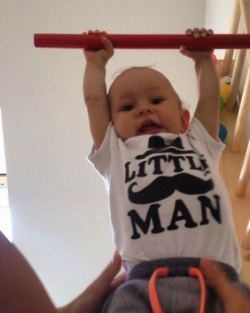
He became a Senior Doctor in medicine. He's the head of all-around development for coaches and young players in volleyball. He was also the Coach of the Czech National Volleyball Team and has been coaching the Extraliga-junior teams in Velké Meziříčí, where his teams have won several medals in the national championships. He transfers his passion for sport into his work and says that a real medical expert must have genuine enthusiasm and passion for what he's doing. That expert must enjoy his work, must be open for learning new things and must investigate deeper in every field of his activity. There is a need to be interested in every single detail which could be decisive at any specific critical moment. Petr has a working relationship with the Czech Republic's best known physiotherapist prof. Pavel Kolář. Petr is also interested in the latest sport science trends.
He says:
Detoxification of a child’s organs

If parents become interested in nutrition as an issue supporting their children in an already embarked upon endeavor, whatever the focus may be, they can sometimes fall into a unilateral preference in the area of sports for stimulants, supplements and a high proportion of sports nutrition. This is due to the fact that they must cover the high energy demands of the children,
who need to be kept in a performance-ready state, and as parents we see it as a fundamental objective, if possible, to ensure that they grow to the maximum extent, that they have the entire skeleton covered with high-quality and highly functional muscles and firm tendons and joints, adapted to the high physical demands.
Approach to the development of children’s motor skills in the Czech Republic, Slovakia and Finland
 Finland is currently on the rise. This can be seen in the field of youth hockey. Although it has a comparable population to Slovakia and has half the population of the Czech Republic it is greatly overshadowing us in terms of the development of sports talent. One of the reasons for this is that it has put an incomparably better and more logical system into practice. Another reason is that the responsible people are not interested in trying to use the system to their advantage, but rather focus primarily on steps that facilitate the development of children and sport in general, and do so deliberately.
Finland is currently on the rise. This can be seen in the field of youth hockey. Although it has a comparable population to Slovakia and has half the population of the Czech Republic it is greatly overshadowing us in terms of the development of sports talent. One of the reasons for this is that it has put an incomparably better and more logical system into practice. Another reason is that the responsible people are not interested in trying to use the system to their advantage, but rather focus primarily on steps that facilitate the development of children and sport in general, and do so deliberately.
Mr. Pasmik is (who is correspondent of Kameveda) in the perfect position for comparison because he grew up in the Slovak Republic, where he travels to visit his parents and relatives, but has long lived permanently in Finland. He got married there and is raising his daughter in Helsinki. He tries to steer her toward sport and has been providing us with interesting findings regarding the new trends in education from Finland and other places for several years.
I asked him to share his experience to another parents of Kameveda:
Mr. Pasmik, what difference in the conditions for the development of children in the Slovak Republic and Finland do parents notice at first sight?
The difference is precisely in the children's playgrounds in front of homes and kindergartens. Something I've never noticed in the Slovak Republic or the Czech Republic is quite common and a matter of course in Finland. Kindergartens have their playgrounds open to the public there 24/7. When you go for a walk with a child and you pass a kindergarten, you can go there anytime. It's a big plus if only in the sense that every playground is a little different and there are different attractions, colors and equipment configuration, so you gain new stimulation. This ensures a constantly new environment that a child is eager to learn and manage.
It might not seem so, but one or two really good and interesting climbing frames can give a preschool age child so much (my daughter will be two years old this week and I can see how much she enjoys it and how quickly she is developing her motor skills, we visit these climbing frames at least twice a day and do a lot of other things). I realized this recently at a large amusement park for children, of which there are truly a lot of here. The park was designed for children from four years old, but before I managed to read the information sign, my daughter had already managed to run up a big complex climbing frame and went through the whole thing without my help.
It is probably a world incomparable with Slovakia, right?
In Slovakia, there are not enough playgrounds, there is a lack of them and therefore children do not move enough, and their development is lagging behind. If this is neglected, then it won't be possible to catch up afterwards They don't see any incentives around them for any movement. Children respond spontaneously. They see a nice colorful climbing frame, scream with joy and set off right away in that direction. You don't have to force them, you just have to make sure they don't overestimate their strength or give them a helping hand if need be.
If a child is strong and manages their body well, it will push them onward in two or three years. And when they see someone playing tennis, they will want a racket from their parents, when they see a hockey player, they will want skates, when they see people on cross-country skis, they will want to learn to cross-country ski. The child must have role models and in Finland there are these role models, because people here really intensively play sports, practically every day.
Is the lifestyle and education joined with it a lot different here in the heart of Europe?
I was recently on holiday with my daughter in Slovakia without my wife. The paternity leave system in Finland is based on the requirement that the father spend all his time with the child alone during it and that the woman pursue other activities during that time, and have some rest. In Slovakia, I was once again convinced that the children are falling behind compared with young Finns as regards motor skills. No wonder, when the playgrounds are locked or there are none (!!)
Some parents, the most active ones, at a maximum sit in the sand with the children, that's their whole activity. Nobody's teaching the children anything or helping them develop their skills in anything. I believe that the Kameveda book should be available in every clinic for expectant mothers.
The difference
I am encountering similar sentiments more and more in the Czech Republic. Children are quickly degenerating as concerns motor skills and people are just gradually beginning to realize that, because the results of comparative studies and reduced quality of life for a growing percentage of the population illustrate it. Some older people say that one of the reasons is the really limited availability or actually lack of availability of playgrounds. There are few of them and if there are any, they are locked. In the past, a common clay square served as a playground, which was full of children. Nothing was fenced-in or locked. Today people invest in Tartan tracks and artificial grass, but a large part of these facilities are inaccessible to children and parents. When you go there in the afternoon or on the weekend, there is no one to be found. So, these million-dollar projects aren't being used by anyone. Before long, their service life expires and it is necessary to do everything over again. You will need more millions from subsidies, but children can only use them during organized sports. This is a serious problem in the system, that nobody in our country cares about.
In my opinion, the cause is the lack of completion of most of the projects. For example, here in Velké Meziříčí a Tartan track and soccer field with third generation artificial grass was built, along with two small playgrounds for basketball and soccer with another type of artificial grass. At first, everything was accessible, but then young people started going there to drink in the evening and make a mess, so it was decided to lock everything up. A few extra dollars for a caretaker who would oversee the operation, at least occasionally, couldn't be found. The premises cost millions, but they failed to plan for a couple of thousand for a caretaker.
That's a big shame, because people in our country have practically ceased playing sport. The percentage of constantly active people compared to Finland is really low. Locked sports facilities are only making this situation worse.
Key to the door of child's life destiny
 During its development, a child meets many people, who influence his life. For the most of them, the parents are the most important. Mother and father. These parents hold the golden key in their hands to (un)lock particular doors to the life journey of their kids.
During its development, a child meets many people, who influence his life. For the most of them, the parents are the most important. Mother and father. These parents hold the golden key in their hands to (un)lock particular doors to the life journey of their kids.
The parents have a huge responsibility for the future of their children, which begins to form in the early years of their lives. Parents are not able to influence the whole life of a child but they decide about the concept of its upbringing in the family and form the basis of its personality and direction.
I had the opportunity to discuss these and other important topics during a meeting with leading Czech scientist in the field of anthropology and genetics, Doc. RNDr. Petr Sedlak, Ph.D., from the Faculty of Science of Charles University in Prague. Now, I'd like to share it with you.
Strength training in children: The myths and the reality
 We were brought up in the belief that children lifting weights is an absolute taboo. That it is something forbidden that will surely destroy or at least permanently damage a young developing body, something that can be described as a major failure of parents or teachers. Only strength training through one's own body weight is said to be permissible, usually without further elaboration. Parents therefore prefer prohibiting the use of any weights for their children in order not to hurt them.
We were brought up in the belief that children lifting weights is an absolute taboo. That it is something forbidden that will surely destroy or at least permanently damage a young developing body, something that can be described as a major failure of parents or teachers. Only strength training through one's own body weight is said to be permissible, usually without further elaboration. Parents therefore prefer prohibiting the use of any weights for their children in order not to hurt them.
Is that the correct approach?
Ball rebound walls help during the development of a child in sports
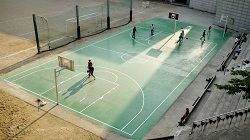 Many coaches and parents underestimate the potential of ball rebound walls and consider them only as something tennis players use for increasing tennis stroke confidence. Ball rebound walls are a totally unique and irreplaceable resource for the development of a child. In terms of Kameveda, they are considered as one of the priorities of development from the age of five, whose importance actually increases with age.
Many coaches and parents underestimate the potential of ball rebound walls and consider them only as something tennis players use for increasing tennis stroke confidence. Ball rebound walls are a totally unique and irreplaceable resource for the development of a child. In terms of Kameveda, they are considered as one of the priorities of development from the age of five, whose importance actually increases with age.
I would like to highlight to parents the enormous development potential of ball rebound walls (BRWs) in this article, in a whole range of sports. In my opinion, BRWs should have a permanent and long-term place in technique development as well as specific physical preparation for systematically sporting children. I will try to support this conclusion with some information and my own experience. I will leave any additional steps to your discretion.
Vaccination of children
 I greatly appreciate the fact that a top infectious disease specialist with twenty years of experience, preceded by a similarly long pediatric clinical practice, MUDr. Květa Batistová, has worked out a comprehensive and exhaustive expert article for Kameveda, on a topic that is extremely topical among parents - vaccination.
I greatly appreciate the fact that a top infectious disease specialist with twenty years of experience, preceded by a similarly long pediatric clinical practice, MUDr. Květa Batistová, has worked out a comprehensive and exhaustive expert article for Kameveda, on a topic that is extremely topical among parents - vaccination.
When my children were growing up, I was forced to take a stance on their vaccination, which was based on mere common sense, limited information, and the effort not to hurt the child. We vaccinated the children for all diseases which were in the "mandatory" box and refused all types of vaccinations that were beyond the scope of this mandatory vaccination. Still, I was struck by the feeling that I was not entirely sure I was doing the right thing. Information in this regard is unclear, often unfounded and frequently very contradictory. Just utter chaos.
We are now presenting you with one of the most valuable expert articles on the issue so far. After having studied it in detail, I finally feel that I can adopt a meaningful stance on the issue of the vaccination of children. In addition, I believe that it is possible to create a general idea of what is particularly important regarding this complex issue. I believe you will get a similar feeling after reading it too:
Today's time is overpsychologized. People are afraid about their health, information is pouring in on them from all sides, until they lose all reason, often on account of the fact that self-styled professional information is supported by research, whether known, invented or altered, which is published as unwavering truth. And this is the big problem of our time. Who can we trust and what can we believe? Experts or people who very emotionally portray the drama surrounding vaccination on the internet, offering their own insights, experiences, stories, and, on numerous occasions they lend credibility to their opinion with the title of MD. People in the position of laymen cannot verify what is true and what is fabrication. They are worried about their children who they do not want to hurt. They must choose. Choose from what is optimal for them and their child, because everything is not 100% positive in life. Everything has some pitfalls.
The truth, like any truth, always lies somewhere in the middle. Every extreme leads to an imbalance of truth. The truth, of course, is only true within the limits of its knowledge, and new findings can move it elsewhere. That is why it is necessary to maintain a healthy dose of "common sense". It is necessary to return to the roots from the beginning to the present and to ask ourselves what vaccination has brought us thus far. Has it been good or bad? The obverse and reverse of the same coin.
Fundamental Values of Great Sports Personalities
 From the very first moment after a baby´s arrival to this world, we stress, according to Kamaveda, about how well the child will develop in the most diverse range of various skills required for success in life. For years, all our efforts are driven with the focus on robust health, locomotor, intellectual and creative development. These activities are extremely important but not sufficient by themselves. Any individual or platform, no matter how strong, must be controlled by a strong spirit. A person without a strong personality can never become a true champion and respected superstar.
From the very first moment after a baby´s arrival to this world, we stress, according to Kamaveda, about how well the child will develop in the most diverse range of various skills required for success in life. For years, all our efforts are driven with the focus on robust health, locomotor, intellectual and creative development. These activities are extremely important but not sufficient by themselves. Any individual or platform, no matter how strong, must be controlled by a strong spirit. A person without a strong personality can never become a true champion and respected superstar.
Zacha set for bigger Bruins role after unique upbringing helped him become pro Center followed father's program from young age
He plucked texts from the shelves of the medical and pedagogical facilities at the university in Brno, Czech Republic, books about tennis stars Ivan Lendl and Martina Navratilova. Pavel Zacha was 38 years old, not yet the father of the future NHL player named after him, but his mind was already whirring, as he picked up Arnold Schwarzenegger's book "Arnold's Fitness for Kids, Ages Birth to Five."
He ruminated on what the world would look like in 30 years, on how to marry health and happiness and success, knowing that he himself had always been happiest while playing sports. He thought about his other children, both girls, both athletic, and how he would raise this one differently, with purpose.
He studied the resumes of sports stars and artists and musicians, trying to search out commonalities from their childhoods, piecing together the ideal program, identifying tricks and tips and methods, constructing a future that would start at birth -- or, really, before.
His son, too, would play sports. He would make sure of that.
"I managed to convince my wife of this untraditional intention, which was absolutely crucial," the father wrote to NHL.com last spring. "Before Pavel was born, I already had all the conditions prepared."
The son, his destiny decided, was born on April 6, 1997.
They would name him Pavel.
The younger Zacha grew up knowing no other life.
"Since a young age, he had told me that I have to be a professional in some sport," the Boston Bruins center said of his father. "It was kind of like, 'OK, you can choose which one you want to do, but you have to be the best at it.'"
Zacha gets a chance to prove that now, to move up in the ranks, to fulfill a father's dreams, as he has in front of him the best opportunity of his professional career. With the retirements of the Bruins' top two centers, Patrice Bergeron and David Krejci, during the offseason, a position in the top six is there for him to take.
Zacha will get every chance to prove he belongs beginning with the Bruins this season. He had three shots on goal in 16:42 of ice time on a 3-1 win against the Chicago Blackhawks on Wednesday. The Bruins next play Saturday at home against the Nashville Predators (7 p.m. ET; BSSO, NESN).
"The opportunity is huge here," Zacha said. "I think that's one of the reasons when I was traded here, it was like, learn as much as you can from the probably the top two two-way centermen in the League. I had the chance to play with them and then [this] opportunity showed up. I think that's something that's a little bit more pressure, but that's what every player wants to do.
"I think I got a great opportunity last year, but this year to take it to the next step is huge."
Getting here, though, started from the first moment young Pavel opened his eyes.
"I even thought it was possible to get kids used to moving and sport even earlier, almost since their birth," the father wrote, noting that his daughters started the program at 8 and 10, which he later deemed far too late. "And I found out there were no boundaries to it. I've created my own structure of upbringing where sports would merge with music, languages, being outdoors, painting or building blocks from toy kits all the time so that it was varied and interesting for the kid and the kid could develop and get better all the time."
Later, he would name it Kameveda
Pavel and wife Ilona dedicated themselves to their son, who was a happy baby. The father built a small gym for him when he was 5 months old and delighted when he started walking at 9 months. Before his third birthday, he required a second bike because he had already destroyed his first.
On a typical day, father and son would finish breakfast and head outside to the sports playground to ride scooters and in-line skates, to play tennis and ballgames, to run and jump. There was soccer, 1-on-1, or the father would act as the goalie in hockey games.
They usually finished with archery before heading back inside for imaginative painting and singing, accompanied by a guitar.
The ice rink was next, for skating or skills.
After lunch, the next stop was a nature reserve, biking and wading through the river, climbing trees and rocks, cooking on a campfire.
There were Legos and English practice.
There was work with a hockey club or tennis club, some rest, some time with his grandfather. In the winter, he would finish the day with 70 minutes of skiing or snowboarding in the evening.
He was 3
"Obviously I did not have a clue at the beginning about how far he would get in sports but I stopped worrying about his performance quite soon," the father wrote, noting that his son was routinely competing against older kids -- and besting them.
When he was 4, the family added basketball and soccer to the tennis and hockey clubs he was a part of, added athletics and karate. By the time he was 12, they would whittle the sports back down to his two best, his two favorites, tennis and hockey.
"I watched which sport he likes the most and each one also gave him something to his total sports potential," the father wrote. "It was tough but this is the healthiest approach for the kid because he is not overloaded one-sidedly but his development is compact, balanced and complex."
"From [when he was 8 years old], we started to travel abroad, and everything started to get even more adventurous. People told me he would be fed up with sports but the truth was the opposite.
"In all those years, he never said he did not want to go to practice or to a game. And even nowadays, he never misses an optional practice in the NHL."
The family had moved not long after Zacha was born from Brno to Velke Mezirici, where his father was from, for the fresh air and the healthy living. Then, at 12, Zacha and his father moved again, to Liberec, for Zacha to join the Bili Tygri Hockey Club, while Ilona remained home making money for the family with his sisters.
His dad was the only dad watching every practice, the only dad tossing his kid a protein shake after it was over, the only dad cooking meals so healthy they at times verged on inedible. ("We got in fights a couple times because I couldn't eat it," the younger Zacha said. "He got mad, so he tried it and he just threw it out because you couldn't even put it in your mouth. He got better.")
"When I planned all this, I considered this the highest sacrifice a father could give to his child," the father wrote. "One has to completely ignore his own ego and put his child to the absolute top of all actions and family values.
"And when our son went to the [Canadian Hockey League] one day, the next day all this was suddenly over and I realized I had just passed the most interesting part of my life."
The story is well known in Czech Republic, both from Zacha's fame and from the books his father has written on the topic, something that Czech legend and former teammate Patrik Elias said was controversial in the country.
When that word is mentioned to Zacha, he readily agreed.
"Oh, it is," he said.
There are three books, the first for young kids, entitled "How to Raise a Champion." The second has a picture of Zacha pulling on his New Jersey Devils jersey. The third includes fairy tales and games to be played between parent and child. All are available on his father's website.
When the story emerged in the Czech Republic, there were questions -- about the methods, about the lack of schooling, about all the eggs in just the one basket.
"He never doubted it," Zacha said. "I didn't either."
They were so single-minded that it was easy to leave even high school behind, figuring that there was no point after two or three months. It's a decision the younger Zacha now rues, thinking back to the former teammates from Brno that he has since encountered, players who own careers fizzled out with no backup plan.
Because he, too, had no backup plan. No education to fall back on.
"A lot of them are not doing as well," he said. "They also put everything on the card of playing hockey. And without the school, the system back home wasn't good enough. They quit school and started playing hockey and it didn't work out. ... Those are also the pressures."
Still, Zacha said he loved what his family did for him, the sacrifices they made, the sponsors they sought so he could play hockey. The one thing he wishes he could have had was his mom in the same place. For those five years, he was 2 1/2 hours from her, seeing her only when she would drive in on the weekends.
"People ask me if you would make it without all the dedication, the hard work, that I did with my dad being with me," Zacha said. "It's hard to say because I would never find out. Am I talented? Maybe. But he made sure I worked out two or three times more than everyone else back home. That was because he was there with me. He was able to cook, clean, everything, for me."
It wasn't until Zacha was 15 that reality started to bear down, that he started to understand the pressure underlying what he had always seen as an idyllic childhood, one to be envied.
"It put a lot of pressure on me," the forward said. "And I think I didn't feel as much pressure until I was in Sarnia [of the Ontario Hockey League] when I got there. Because I was like, OK, there is so much put on me."
He arrived able to speak little English, and over his first 20 games he had only a point or two. The 2015 NHL Draft was already looming, and Zacha felt the desire -- no, perhaps, the need -- to be taken high, the hopes and plans of his family on his back. Their lives, he knew, had been put on hold for him.
"That hit me hard then," he said.
He was tough on himself, always looking at the details he missed, picking apart his game and his season. He was never satisfied, even in his good games. He was focused totally on hockey, still not attending school -- he quit a couple of months into high school -- working only on learning the language and learning the game.
"You dig yourself deeper and deeper," Zacha said. "That's the pressure that I felt, just creating in myself basically most of the time. That's something that I had to also work on a lot, to see the good things that I do, also learn, but acknowledge that I do something right, that I'm here for a reason."
He would be selected by the Devils with the No. 6 pick in the 2015 draft -- a moment his father called his "final exam" as a parent -- and there again was the pressure.
He worked through it himself, but also with the help of his agent, Patrik Stefan, a former player who understood exactly what Zacha was going through, having been the No. 1 pick in the 1999 NHL Draft but lasting only 455 games in a largely disappointing career in the NHL.
"You look at Pavel, he wants to please his parents, his dad, he wants to please the coach, he wants to please the outside people that write about him or trust him or believe him or talk about him," Stefan said. "And that's a lot."
Stefan could see so much of himself in Zacha. He still does.
"I got pushed really hard by my father," Stefan said. "So did he."
Nothing quite went right for Zacha with New Jersey. He had come in, yet again, with pressure, having been taken with such a high pick. He shared the ice in his NHL debut with Elias, playing on the same line in the final game of the Devils legend's career, and it felt like, just maybe, a torch was being passed.
But that wasn't what happened
"It wasn't easy for him," Elias said. "I think that it wasn't fair to get him as the No. 6 pick. When he came in, that year, the top five guys, if not 10 guys made the NHL right away. I don't think it was fair to him because everybody develops at a different time."
That 2015 NHL Draft included luminaries like Connor McDavid (No.1), Jack Eichel (No. 2) and Mitchell Marner (No. 4). Timo Meier went No. 9; Mikko Rantanen at No. 10.
In New Jersey, Zacha lacked consistency, Elias said, with a 15-game tear followed by 10 or 15 where "you wouldn't even know he was in the lineup."
Zacha felt he was never given the right opportunity, never given the space to be what they told him they wanted him to be. He wanted to be a center, but ahead of him were young players like Jack Hughes and Nico Hischier, and where, ultimately, did he really fit?
"You keep telling me that I'm going to be a center in the top six, but it's just not going to happen here for a long time," he said. "That's why I kind of struggled mentally a little bit too, because you want to be the best you can be and I just felt that this situation that I was in there didn't let me grow as much as I could."
Which is why Boston has felt so refreshing. Zacha was traded from New Jersey to Boston on July 13, 2022, for veteran center Erik Haula.
It has been a steal
"[I] played with him in Jersey and I saw the potential that he had," said Chicago Blackhawks forward Taylor Hall, who was Zacha's teammate with the Devils and Bruins. "Quite frankly, I saw him not really have a role there and not really have an identity as a player. ... I think once he got [to Boston], he was coached very well, he was given a lot of opportunity and he made the best of it."
Boston was a veteran team, a team that knew where it wanted to go and how it wanted to get there, a team where every line brought with it the chance for offense and excellence, a team that included a number of Czech players, including a childhood friend in defenseman Jakub Zboril and a mentor in Krejci.
"To me," Elias said, "he's playing without worry."
With the Bruins, there is a clear path to where he wants to be. With the retirements of Bergeron and Krejci, the center position is wide open.
"It was their decision to leave the game, and they did the best they could last year and everything before that," Zacha said. "It's a bittersweet moment for me to now try to take the torch from them."
He is soothed by the fact that he spent the past season learning from them, players whose details on defense matched their touch on offense. And with that, Zacha understands the player he wants to be, the player he's going to be relied on to be, now that he's a top-six center.
"I know I'm never going to be able to be like Patrice, but just as close as I can get to him, that's going to help the team be better in the future," said Zacha, who topped his previous NHL career high of 36 points (15 goals, 21 assists) from 2022-23 with 57 points (21 goals, 36 assists) last season, better utilizing a shot that Elias called "one of the best shots I've seen in the NHL."
And the fact that his teammates and his organization see him, that they see the little things he does, that they appreciate them? That has made a world of difference to Zacha.
"When you work hard, you have a good shift, you win a battle and you come to the bench, they're like, 'OK, great job,'" Zacha said. "You're like, 'I didn't even have an assist or a goal.' It's not what I'm used to, being acknowledged for the little things that you do as a two-way player."
Zacha signed a four-year, $19 million contract ($4.75 million average annual value) on Jan. 14 that runs through the 2026-27 season, giving him stability and continuity and, it seems, a solid future.
"To see him in this environment and having this season, just seeing him to have a smile on his face?" Stefan said at the end of last season. "The guys around him and what kind of leadership and how much fun he's having? It's almost like a perfect fit."
The pressure has eased. His performance has soared.
This is the life that Zacha's father planned on: the steady, if perhaps not spectacular, career in the NHL. The life focused on athletics, succeeding in a sport that Zacha truly loves. This was what the father and the mother envisioned as they dreamed together about the child they might one day have and the way they might raise him.
As his father wrote, "Our common goal was unequivocal -- to play in the NHL one day. Pavel and our entire family has done the maximum to make it happen and we are happy he has reached his dreams.
"I believe it is even fair in a certain way as for his special journey up to here in Boston and for all those thousands of practices, he deserves it."
Zacha, however, did not get a say.
"Life was put to me a certain way," he said.
He never questioned it because the results were always there. He was always getting better, always moving up. He looked with pity at the kids doing something else with their time, going to class, while he had another tennis tournament. That, to him, was joy.
But did he feel like he had a choice?
"I just never thought about it that way because I had so much fun playing sports," Zacha said. "Like it was brought up to me in such a positive way. Sports, you can do what you love and make money in the future."
Now, though, he wrinkles his brow while pondering a question.
"It's just funny thinking about it, that they decided all that stuff, now when I'm talking to you about it," he said with a chuckle.
"I think the choice they gave me was the best they knew they could give me," he said. "It worked out. I love what I do, love sports. I can play tennis with anyone, even now. It's just one of the things you appreciate. I guess if I didn't love sports, it would be harder. If I ended up at a certain age being like, I actually want to be a teacher or a lawyer, it would be hard. But I never had that mentality. I always loved what I do."
But, he is asked, what will he do with his own children? He has none yet -- he got married this summer back home in Czech Republic -- but it's a thought that has crossed his mind.
"It's hard because I also know the pressure," Zacha said. "I would want them to do the same thing as my dad in the way that, give them the opportunity to play sports because I think it's good. ... Because I'm probably going to stay in the U.S. after my career, I would like to go through the route of giving them the opportunity to go through school, so they have something to fall onto."
He still feels good about the decision, about his childhood, about what he was designed and raised to become. He knows it's not the only way to become a professional athlete -- his brother-in-law played soccer for the national team in Germany and had a far different experience growing up -- but he also knows and believes that he had a worthy childhood, an enjoyable childhood.
"I always thought I had a better childhood than other people," he said. "I wouldn't change it all."
https://www.nhl.com/news/pavel-zacha-set-for-bigger-role-with-boston-bruins
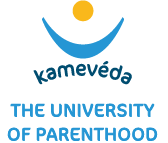


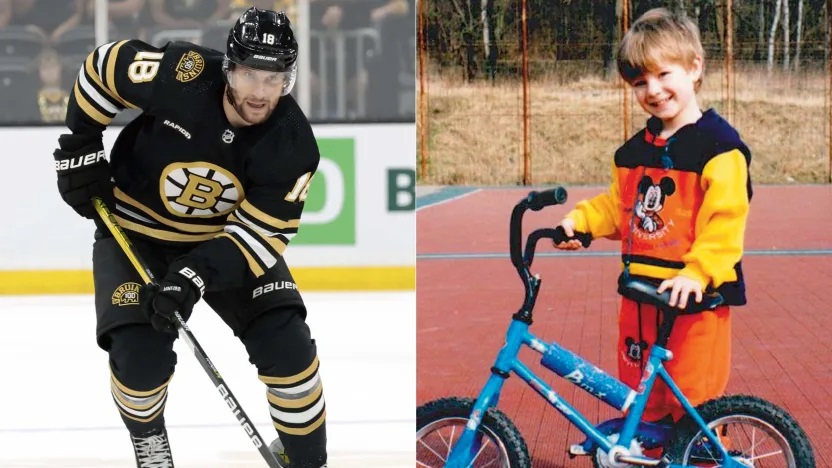
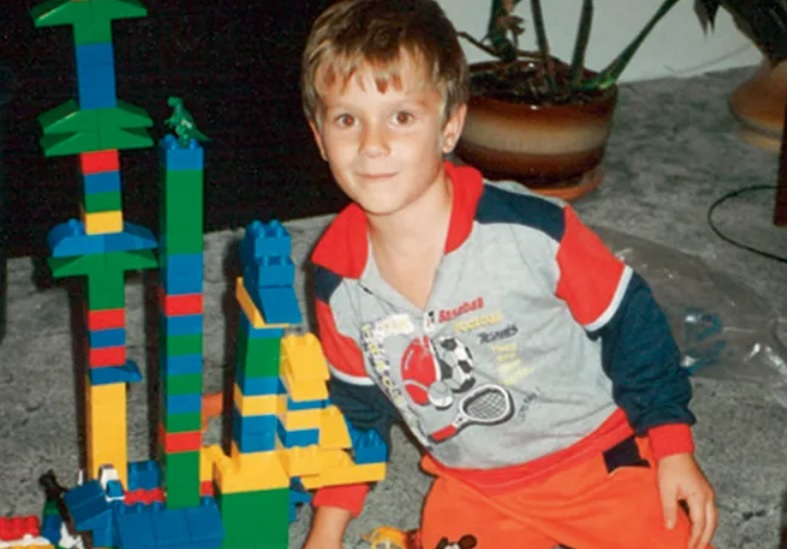
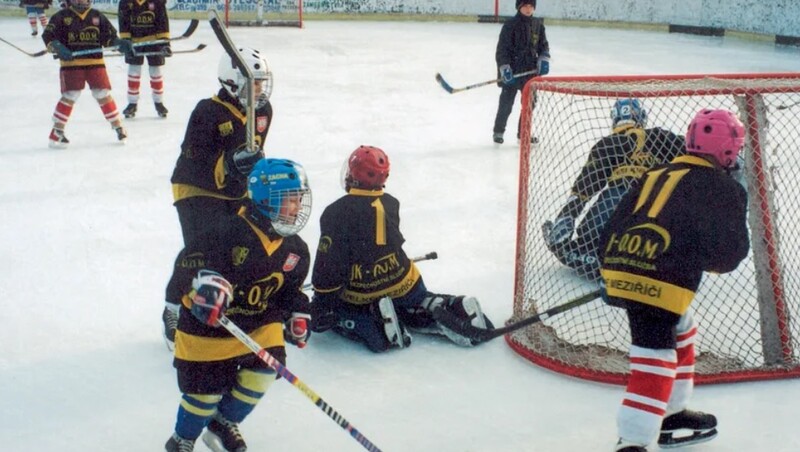


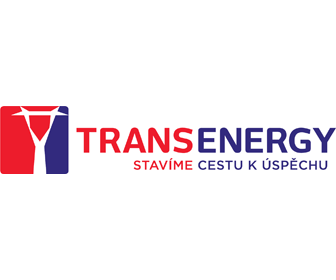
 Vytvořeno v XART.CZ
Vytvořeno v XART.CZ